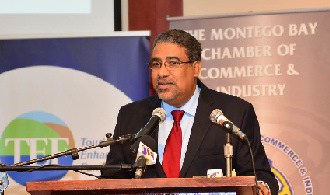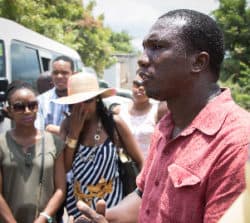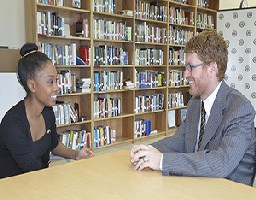World Bank Provides $150 Million to Combat Zika Virus in Latin America and Caribbean

Initial regional economic impact projected to be moderate but requires urgent action to halt Zika virus spread
WASHINGTON — In order to support countries in Latin America and the Caribbean affected by the Zika virus outbreak, the World Bank Group announced today that it has made US$150 million immediately available.
This amount is based on current country demands for financing and follows extensive engagement with governments across the region, including sending teams of technical experts to affected countries. If additional financing is needed, the World Bank Group stands ready to increase its support.
This announcement was accompanied by the release of initial projections that the short-term economic impact of the Zika virus on the region will be modest, totaling US$3.5 billion, or 0.06% of GDP in 2016.
The World Bank Group noted, however, that these initial estimates are predicated on a swift, well-coordinated international response to the Zika virus. They also assume that the most significant health risks—and related behaviors to avoid transmission—are for pregnant women. This follows the World Health Organization’s February 1 declaration of the suspected link between Zika virus infection during pregnancy and microcephaly in newborns.
Even with these assumptions, however, a group of countries highly dependent on tourism—notably in the Caribbean—could suffer losses in excess of 1 percent of GDP and may require additional support from the international community to stem the economic impact of the virus. As new knowledge continues to emerge about Zika virus transmission and impact, or should public perceptions of risks from Zika rise sharply, the economic impacts will be reassessed.

The World Bank Group financing will support a range of activities critical to the Zika virus response, including vector surveillance and control; identification of the people most at-risk, especially pregnant women and women of reproductive age; follow-up and care through pregnancy and postnatal care for neurological complications; promoting access to family planning, public awareness, self-protection measures, community mobilization; and other activities that will ensure a robust, well-targeted, well-coordinated and multi-sectoral response.
World Bank Group teams are actively working with the affected countries on their Zika response plans and responding to requests for technical support.
“Countries in Latin America and the Caribbean have made it a priority to respond to the Zika virus emergency,” said Jorge Familiar Calderon, World Bank Vice President for Latin America and the Caribbean. Reflecting on his recent trip to Panama, where he visited the indigenous Kuna community of Usdub, he said, “I’ve seen firsthand how communities across the region are working together to successfully protect the population from the Zika virus. We stand ready to continue supporting their efforts through technical advice, knowledge sharing and financing.”
ADVERTISEMENT






